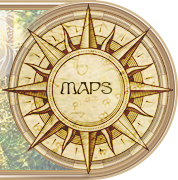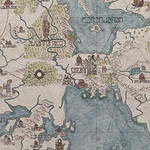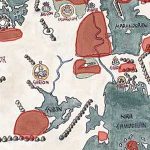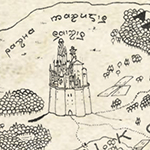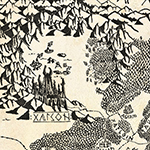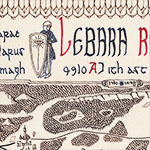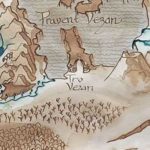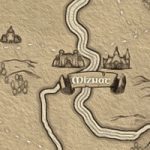In Grand, the word “god” denotes a rather large spectrum of beings that have often nothing in common or differ dramatically in their scope of authority. Broadly speaking, “god” is any being or power that is unique.
A god, or rather a godling, is the spirit of a natural spring woken to consciousness at the moment of its origination, as well as the immortal, eternal Azhar, who existed before Grand; the simple and fierce, elemental god of storm, or the scheming, garrulous god in a human form, who, disguised as a failed bard, lazes around the feasts in the Northern kingdoms.
Still, we can attempt some basic division and hence an understanding (the way of the Dividers).
One of the frequently used divisions is, on the one hand, “powers that have gained consciousness”, and on the other, “consciousnesses that have gained power”.

In the first case, we speak about the “gods of something”. Once a thought, object, emotion or any other thing acquires – by mysterious means, certain boundaries – it also gains consciousness. Boundaries are acquired through division, and division is equal to naming or understanding. Therefore, every individual consciousness is born at the moment it is given a name. The naming does not have to be put in words; a distinct point of view is sufficient. But enough of metaphysics. Simply put, some of the powers, both great and small, gained consciousness together with genus and manner adequate for the bearer of the consciousness in question. The tiny stone godlings will make do with one or two thoughts in three centuries, while the god of a volcanic crater is endowed with emotions rather than thoughts; once in a few decades, they erupt forth in a jealous tantrum whose consequences are acutely felt by their wider surroundings. The afore-mentioned genus also includes gods of various actions such as eating, sleeping, singing, or weeping, where most people are oblivious to the god’s existence, though constantly bringing him sacrifices. The more obvious gods are the patrons of various occupations such as trade, thievery, gambling, the art of love. There are gods of the courts of justice, the executioners, etc.
As for the physicality of this type of gods, their body corresponds to what they are. The body of a sea god is the sea itself; the storm is the body of a god of storm and so on. Although most people “know” a god is present, they are unable to become aware of his existence . Those able to do so see him as a living body instead of an inanimate object. This ability is an original and natural instinct; only the education systems in the so-called more advanced cultures teach people out of seeing gods and powers – a skill the students at the schools of magic in Sairis must them reacquire through hard study.
The second case includes the gods who once used to be someone of the “people – great sages, heroes of human, Elven or other origin – who purified the “mirror fragment” in them to such an extent they became gods. The power of these beings is usually smaller in scope than that of, say, the storm deities; on the other hand, they are more individual and their actions less predictable. Unlike the gods from the first group, they have something of a personal history and change their personality throughout the ages.
In addition to this general division, there are many transient states and numerous exceptions, which are not easy to summarize.
Gods appear in many different forms. The god of passion is passion, and that is why when passion is at play, he is present wholly and instantly. The god of a mountain is the said mountain and so on. Still, there are also anthropomorphic manifestations of gods where to men they seem like men. This is obviously not their true form, and they only wear it to enter human society. The first kind of anthropomorphic manifestation is the so-called “herald”, who alone can have several variants.
The created herald is an individual of human (Elven/animal/other) appearance, which is the pure manifestation of the god’s will on earth and acts with his purpose. Usually, he is much stranger and extraordinary than the borrowed herald. Some gods have a favourite look they like to impress on their self-made herald, and so the people often confuse the herald’s appearance with that of the god himself.
Another type is the borrowed herald. In this case, the god in question borrows a living being to reach his goals through his or her body. This being says and does strange things and perhaps even fails to remember them the next day.
In addition, there are many other ways in which gods can manifest and act but their scope is so large that an attempt at ordering or categorizing them would cause more harm than help.
